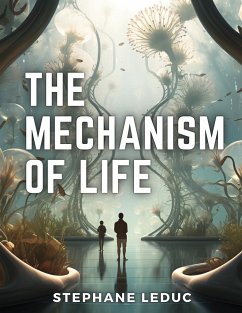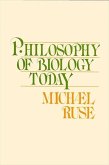"The Mechanism of Life" is a groundbreaking work by the French physiologist and biochemist Stéphane Leduc, originally published in 1911 under the title "La Biologie Synthétique." In this influential book, Leduc explores the idea of a mechanistic approach to understanding the fundamental processes of life, challenging traditional biological perspectives of his time. Leduc was a proponent of the concept that living organisms could be understood through principles of physics and chemistry, akin to a machine. He proposed that life processes could be explained through the physical and chemical interactions of living matter. Leduc's work was particularly notable for its attempt to synthesize life-like phenomena in the laboratory, using chemical substances to create structures resembling cells and even imitating some aspects of cellular functions. One of the key concepts in "The Mechanism of Life" is the idea of osmotic phenomena, wherein Leduc explored the role of osmosis in cellular processes. He conducted experiments involving the formation of artificial cells, referred to as "osmotic growths," by encapsulating various substances in semi-permeable membranes. Leduc's work was met with both acclaim and criticism. While some praised his innovative thinking and experimental techniques, others were skeptical of his mechanistic approach to understanding the complexity of living organisms. Over time, some of Leduc's ideas fell out of favor as the field of biology evolved, embracing more nuanced and holistic approaches to studying life. Despite its eventual historical context, "The Mechanism of Life" remains an important work in the history of biology, as it reflects an early attempt to bridge the gap between physics, chemistry, and the intricacies of living organisms. The book provides valuable insights into the scientific thinking of its time and the evolving understanding of life processes.








